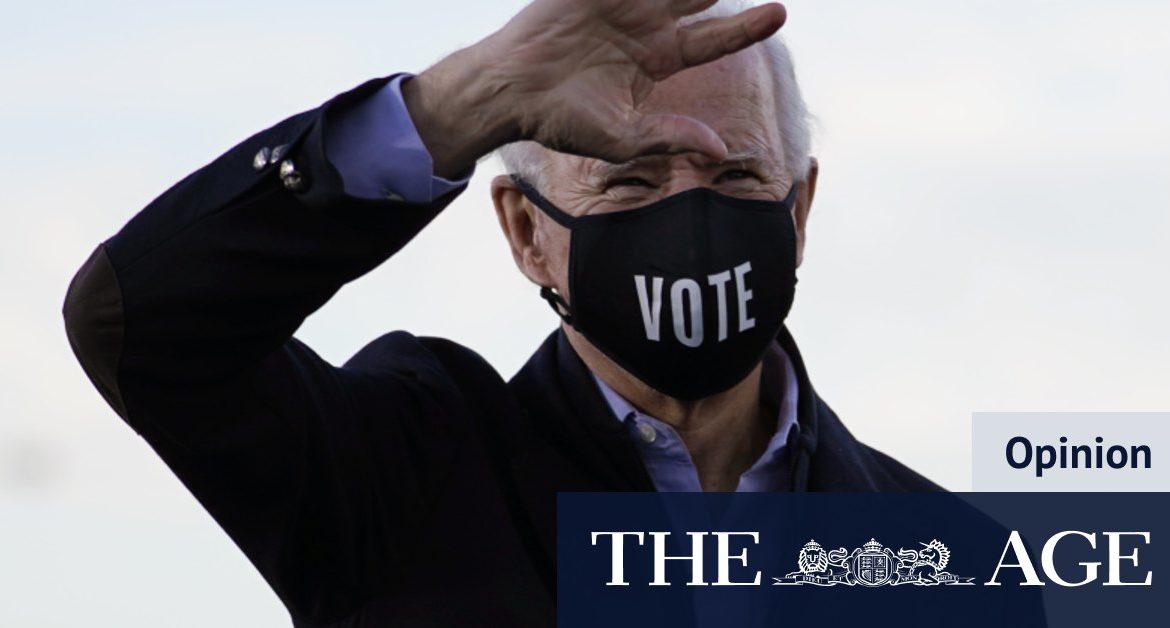However, we should not be complacent. There is a push to make it harder to vote in Australia too.
The truth is that voter suppression, not voter fraud, is the big scandal in US politics and this has been true for many years. It is arguably what decided the outcome of the 2000 presidential election, since thousands of voters were purged from the Florida rolls before polling day and then George W. Bush ultimately won the state and the presidency by only 537 votes of nearly 6 million cast.
There is often a shortage of polling booths in areas where non-white voters are the majority, resulting in people in rural areas driving hours to vote and those in urban areas waiting in long queues. A study by Massachusetts Institute of Technology proved black voters had to wait longer than white voters on average in the 2016 election. Don’t forget, too, that citizens are not necessarily guaranteed time off work to vote.
Once you do make it to the front of the line, a number of states require you to show identification to prove who you are before casting your ballot. A handful of states – including Georgia – don’t even allow you to make a statutory declaration or written affidavit attesting to your identity if you don’t have ID with you.
Despite there being no evidence of voter fraud in Australia, there are people pushing for voter ID requirements here too.
Loading
The federal government’s joint standing committee on electoral matters recently recommended voter ID, quoting submissions in support from the Institute of Public Affairs and others.
The committee’s report on the 2019 election, released two weeks before Christmas, includes a recommendation to require ID to vote and another recommendation to require ID to enrol or change address. Liberal members of the committee made similar recommendations in their reports on the 2013 and 2016 elections as well.
Meanwhile, the Greens and the Australian Labor Party both produced dissenting reports, opposing this and several other measures. Other proposals in the report suggest making preferential voting optional, abolishing byelections (giving the party the right to replace the candidate), and shortening the pre-poll time to a maximum of two weeks. Let’s focus for now on voter ID.
The idea that voters should have to prove their identity is one of those things that sounds reasonable if taken at face value, along with a president declaring you should “count all legal votes”.
But we should not take it at face value. Voter ID is a barrier to voting and a slippery slope to disenfranchisement. Showing my licence wouldn’t be a problem for me and it might not be for you either but it is for the most disadvantaged members of our community, including itinerant and Indigenous voters, people experiencing homelessness and those escaping domestic violence.
A US judge appointed by former president Ronald Reagan who upheld voter ID laws in Indiana later said he was wrong and voter ID laws were a form of voter suppression.
Loading
In Australia, Queensland introduced voter ID laws in 2013 and legal advocates say it has disenfranchised voters, especially older people, Indigenous people, and people with disability. The Guardian reported that not all electoral officers in the 2015 election allowed people to make a declaration vote, where you sign a statement that you are eligible to vote, while voter turnout was down overall. The laws have since been repealed.
The December parliamentary report recommends a broad variety of ID be accepted, from photo ID to utility bills, exemptions for various categories of person, and workarounds such as offering people a declaration vote. But no matter how inclusive you try to make it, it creates an additional barrier and a feeling of disconnection with the voting process.
It’s also a stalking horse because once you introduce voter ID laws, it’s a simple matter to tinker with – and tighten – them with subsequent reforms.
The AEC gave evidence to the committee that the level of apparent multiple voting for the House of Representatives in the 2019 election was just 0.03 per cent and this was mostly people experiencing mental health issues.
Voter ID is a solution looking for a problem and one we should shun.
Caitlin Fitzsimmons is a senior writer.
Caitlin Fitzsimmons is a senior writer for The Sun-Herald, focusing on social affairs.
Most Viewed in Politics
Loading







